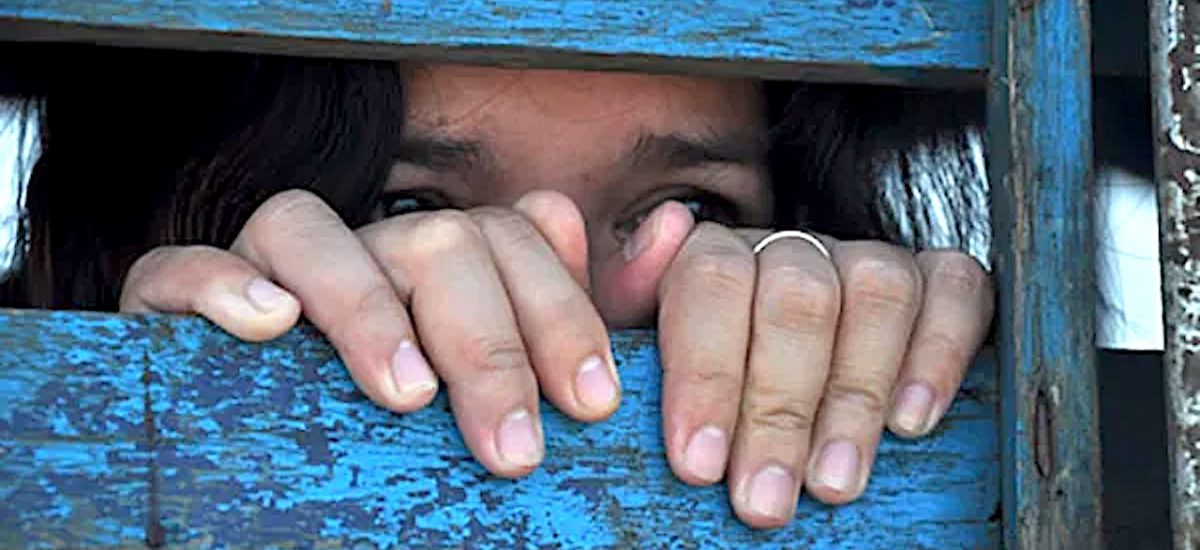Photo courtesy of Aithiya
Today is the World Day Against Trafficking in Persons
The World Day Against Trafficking in Persons is observed on July 30 to raise awareness about human trafficking and to promote the rights of trafficking victims. The day was first observed in 2014.
This year, the UN Office on Drugs and Crime (UNODC) has named the theme for the day as “Leave no child behind in the fight against human trafficking”. The theme is particularly important as children represent a significant proportion of trafficked victims globally with girls being disproportionately affected. It is estimated that one in three victims of human trafficking globally is a child.
Children are estimated to face twice the violence during trafficking than adults. Regions such as Sub-Saharan Africa, Latin America and North Africa bear a disproportionate burden with children making up 60% of detected trafficking victims.
Sex trafficking and forced labour are the most notorious types of trafficking but trafficking has other forms as well. Victims are trafficked and exploited for benefit fraud, as beggars, for forced or sham marriages, in pornography production and for organ removal. These other forms of trafficking are under reported and tend to receive less public attention.
In Sri Lanka, many migrant workers leave for Kuwait, Jordan, Saudi Arabia, Qatar and the United Arab Emirates to work willingly as construction workers, domestic servants or garment factory workers. However, workers find themselves exploited and face sexual abuse, debt bondage and withholding of their passports.
The root causes of human trafficking are complex and deep. Some of the common factors identified by experts include people wanting to migrate in search of better conditions such as poverty, lack of human rights, lack of social and economic opportunity, political instability and civil unrest. With children, war and civil conflict lead to displacement with an increased number becoming orphans and homeless, leaving them vulnerable to traffickers.
These factors tend to exert pressures on victims that “push” them into migration and into the control of traffickers. Still, other factors that tend to “pull” potential victims can also be significant. The rapid expansion of broadcast and telecommunication media such as the Internet and social media across South Asia may have increased the desire to migrate to developed countries and into the vulnerability of the “traps” traffickers set.
Another cause identified is parents trusting their children with friends or relatives, which creates vulnerability. Parents are also reported to sell their children, not just for the money, but also in the hope that they will escape poverty. They want their children to have better opportunities, to receive an education and enjoy a better quality of life.
In Sri Lanka, the 2024 US Department of State Trafficking in Persons Report found that local government and security sector officials sometimes forced women who asked for information about their missing husbands or widows who wanted to claim government benefits to perform commercial sex acts in exchange for information and government benefits. The report noted that labour traffickers exploit children in small boutiques and informal markets.
A report by the Asia Foundation found that terms human trafficking and people smuggling being used interchangeably creates issues. For example, an individual who is smuggled can be easily framed as having willingly participated in breaking the law. The act of knowingly participating in a process has allowed alleged traffickers to challenge the charges of trafficking. The report notes that there is a need to better understand and appreciate the gender dimensions of trafficking and violence. The common assumption that only women and children are vulnerable to trafficking needs to be challenged and the understanding of gender including men must be identified. Trafficking vulnerability may differ according to age, ethnicity, education and diversity of experiences.
Social stigma was identified as a major barrier for individuals to seek legal help in Sri Lanka. The re-victimisation of the victims during the criminal justice processes can have a devastating impact on their physical and mental wellbeing and deter individuals from seeking legal assistance.
In 2010, Sri Lanka established the Anti-Human Trafficking Task Force (NAHTFF) to coordinate the efforts to combat human trafficking among the stakeholders who participate in activities related to human trafficking. The task force, now under the Ministry of Defence works to under the four P’s – Prevention, Prosecution, Partnership and Protection.
The work under the task force has been to educate senior government officials and military officials on human trafficking, strengthen hotline operations to combat human trafficking and training programmes.
The Covid-19 pandemic and the 2022 economic crisis have exacerbated human trafficking in Sri Lanka. Young people who flee abroad in search of better opportunities risk falling into the hands of people smugglers. Micro finance companies target women with predatory loans and contracts that result in debts that force women to subject their children to sex trafficking to pay off the loans. The Covid-19 situation contributed to an increase in cybersex crimes and fraudulent online scam operations.
The 2024 Department of State report notes that Sri Lanka met Tier 2 for the minimum standards for the elimination of trafficking as it is “making significant efforts to do so”. The report acknowledges that the government is making policy changes to strengthen victim care, cancelling licenses and blacklisting of more recruitment agencies and aiding a greater number of migrant workers. However, it also mentions the government’s non-cooperation with foreign law enforcement on trafficking cases and holding complicit officials accountable for their trafficking actions.
To address this issue, the report includes specific prioritised recommendations to help combat trafficking in persons including eliminating the recruitment fees charged by labour recruiters to workers, increasing efforts to address child exploitation in tourism sector and formalising the domestic work sector.

